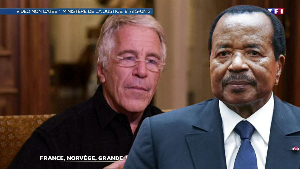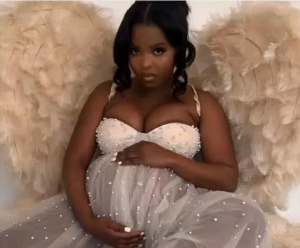Just about five years to the next Presidential election in 2018, when President Paul Biya will be 85 years and most likely may not stand for election, his next government now almost overdue will by all logic be his last. There are no scheduled elections between now and 2018 to call for predictable cabinet reshuffles.
The calendar only points ultimately to 2018. Municipal, Senatorial, Legislative (how shall we call it now, since Senate is also part of the Legislature?) elections all held this year, so their five-year mandates will expire in 2018 when the seven-year Presidential mandate from 2011 also falls.
2018 shall be the all-elections year! (Well, except the President decides to hold Regional Council elections.) 2018 shall also be the eve of 2020, midterm target for GESP.
So, the 2018 elections may all be happening behind the back of Paul Biya who may have the magnanimity to take a much deserved rest at 85 after 36 enviable years at the helm. He just may.
There is no legal impediment to another run by Paul Biya. Unlike in Benin and the Ivory Coast where the law imposes a 70-year and 75-year age limit respectively on Presidential aspirants, there is no such limit in Cameroon.
Also, the 2008 constitutional amendment removed the two-term limit that would have prohibited Biya to seek another term in office after 2011 and beyond 2018. Under the 1996 constitution in its original form, Biya served his constitutional two-year terms in 1997-2004 and 2004-2011.
Yet, analysis being based on possibilities and probabilities, not certainties, there is every reason to see the government expected from the president’s desk any of these days to be his last major reshuffle.
There may be minor shake ups to fix and adjust here and there, but traditionally, the president has not changed a PM midterm, except Inoni-Yang in 2009 which for Inoni (2004-2009) marked about the duration of a five-year Parliamentary mandate.
So, if Biya replaces Philemon Yang now after a tenure since July 2009, also about the length of a Parliamentary mandate, his successor will likely remain in office until 2018, except in case of extraordinary poor performance and unforeseen events not excluding an expected bitter succession struggle that may characterize this last lap to the expected end of the Biya era.
Those are some of the safeguards Biya may be concerned about for which he could be doubly cautious. But there is also the president’s concern about his legacy. Remember him saying he wants to be remembered for bringing democracy and prosperity to Cameroon.
He can boast – rightly or wrongly – of political achievements, but himself still has doubts about his socio-economic slate. In his end-of-year speech, he showed satisfaction with his political achievements. Twice he saluted the level of political maturity which he said shame the socio-economic.
“We have abundant and diverse natural resources as well as modern democratic institutions. Our country is peaceful and stable. What do we lack?”
A previous cut several paragraphs up the speech was even more illustrative: “Our political horizon is now very clear.
It is time for serious and objective discussions on issues that are dear to Cameroonians which, as you know, are purchasing power, employment and living conditions.” Neither is the president confident his team as it is now can deliver on his 2035 ambition at this rate.
There are pointers in his end-of-year speech to Biya’s job profile for his next government or signals as to who he might part with. He finds inadequacies in private investment, motor for economic development and job creation, and craves for an improvement in the business climate. However, one would have thought that the president found the man for the profile when he got a private sector banker at Finance.
Or was he also questioning the competence of his Economy minister when he lamented ineffectiveness and inconsistency in State action and economic policies?
Biya might have been preparing the grounds for dissolution of the Public Contracts ministry when he complained about bottlenecks in decision-making for projects and the 50 percent non-execution of public investment projects.
Perhaps equally so when, knowing the battles for competence between the long existing Public Contracts Regulatory Board and the newly created Ministry, he said it was time to remove sticking points and areas of dispersion and duplication.
Above all, was the President addressing the PM’s office or the Secretariat General at the Presidency when he frowned at poor government coordination? Both instances play the role, sometimes in similar ways. So who will pay: the Prime Minister or the Secretary General at the Presidency?
Biya says this is the time for action on the Growth and Employment Strategy Paper or Vision 2035 and wants a contingency plan. Does he need a government coordinator who does not fear taking bold action and can swiftly execute Biya’s idea of a contingency plan? Biya knows he can find men with the track record for daring just around the corner.
But Biya may be taking his time to scout for the extraordinary men. Can he find them outside his already overexploited and recycled catch of men who filed past him to present New Year wishes the other day, some winking at him discretely?
To say there are none left won’t be all so true. Biya may even return to some old hands. Could meaning be read in his brief word with Sali Dairou, his former Public Service minister, also former Director of PM’s cabinet under Sadou Hayatou when Dairou claims the government functioned better. Dairou had been on CRTV only days before, recalling the “good old days”.
Biya may even find some of the “extraordinary” men for his last lap from the ranks of the SDF who are themselves evidently anxious to join in order to be part of the “last supper” and the succession scheming from within. That is if Biya has the magnanimity to shun 2018.
Opinions of Tuesday, 23 September 2014
Auteur: Franklin Sone Bayen














